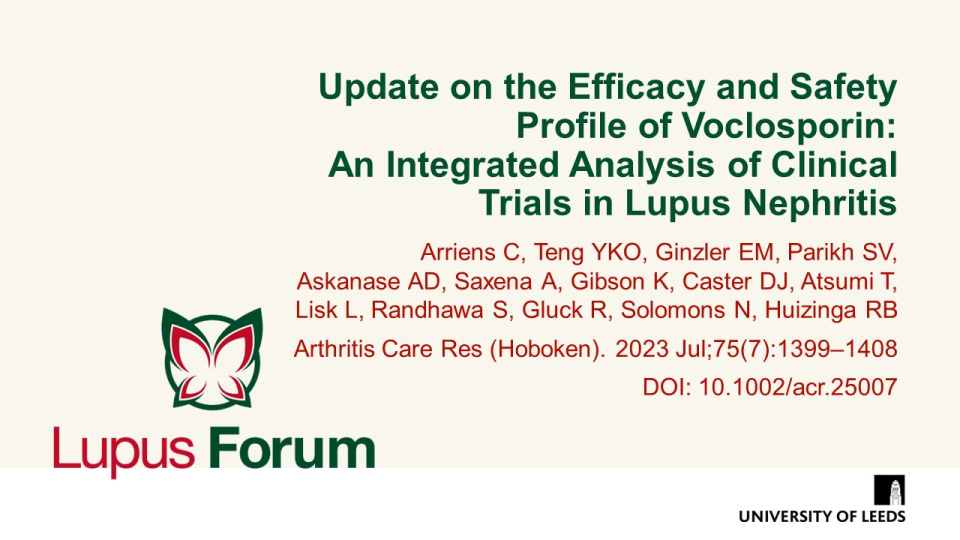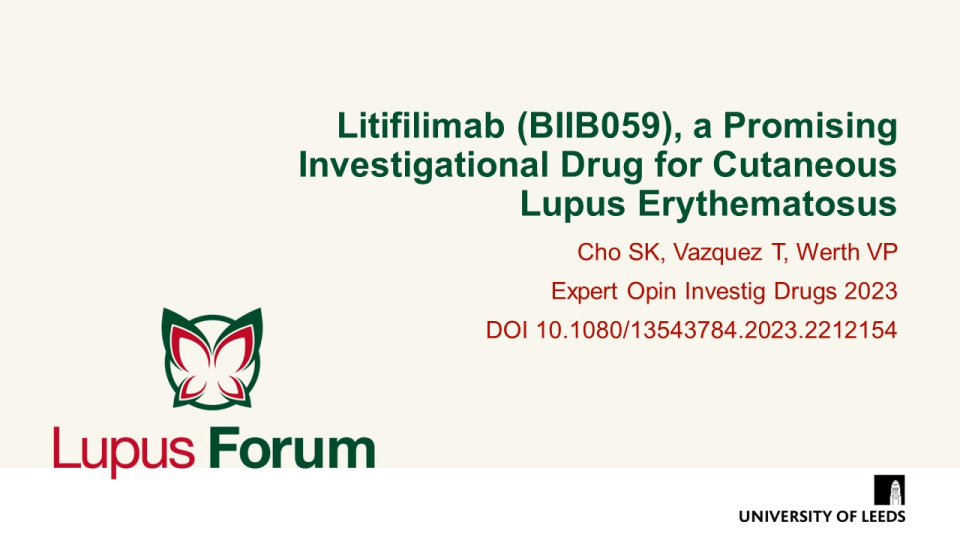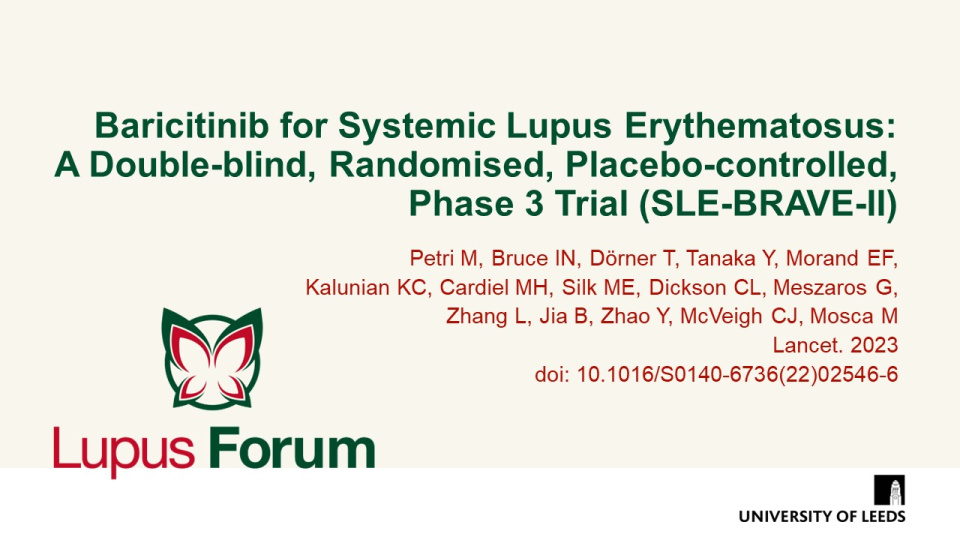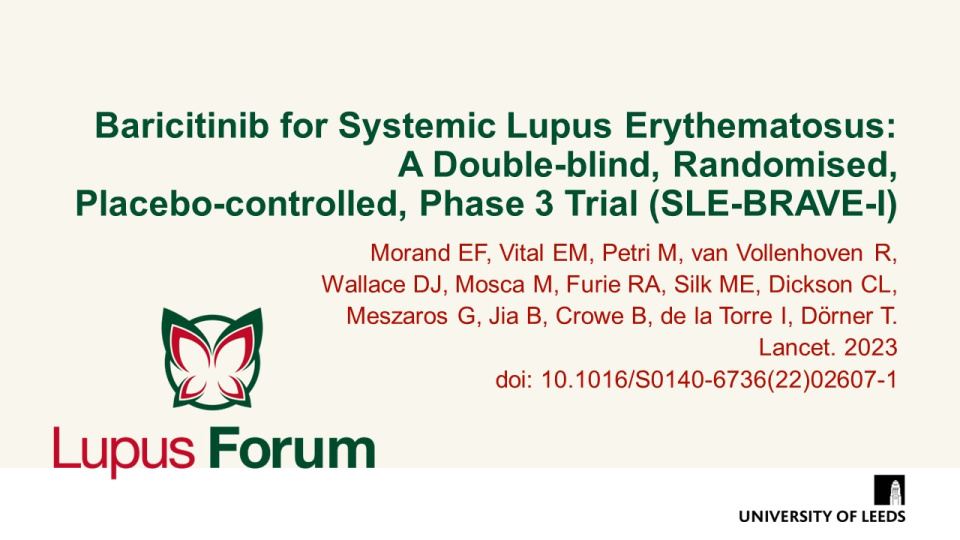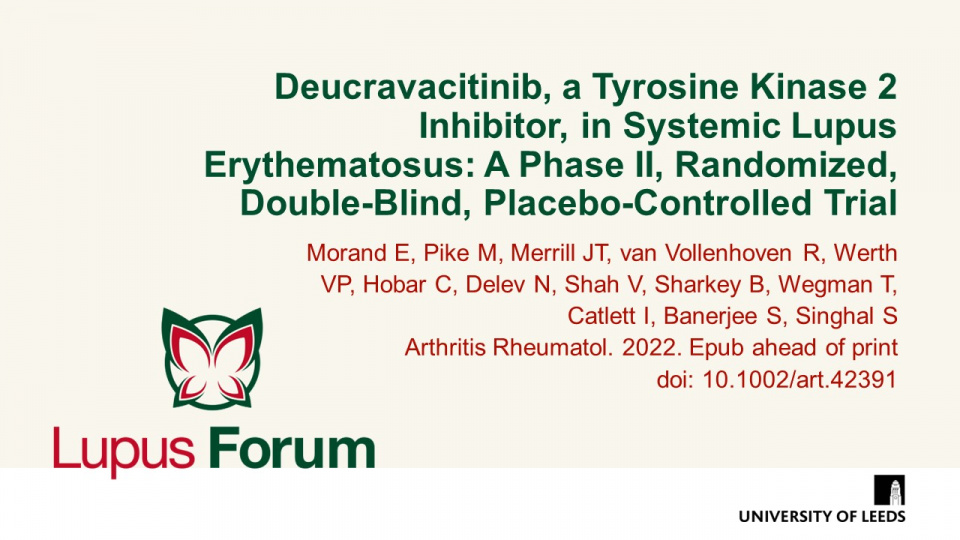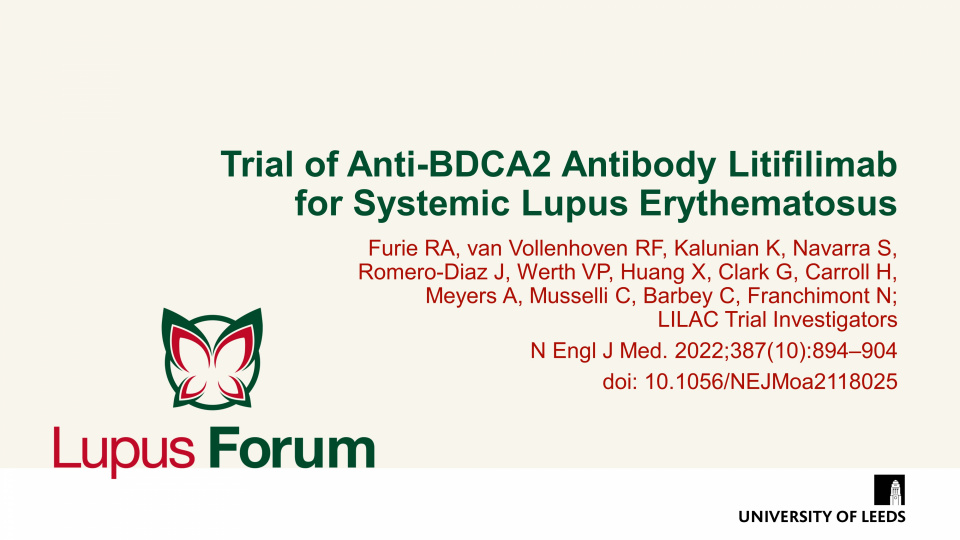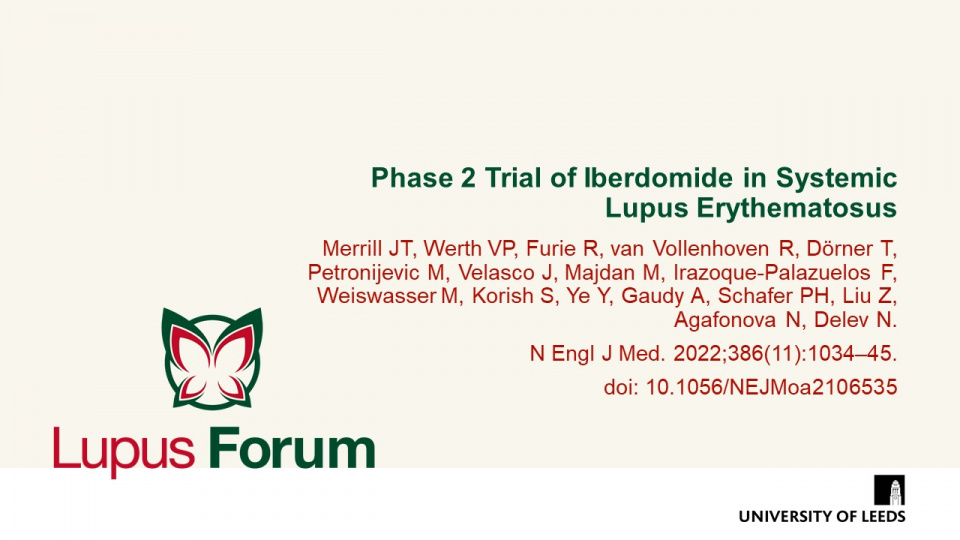Publications
Find coverage of the latest original articles on Lupus, focusing on those with data on therapeutic interventions and those that have clinical impact.
Update on the Efficacy and Safety Profile of Voclosporin: An Integrated Analysis of Clinical Trials in Lupus Nephritis
Arthritis Care Res (Hoboken). 2023 Jul;75(7):1399–1408 DOI: 10.1002/acr.25007
Pooled analysis of data from the AURA-LV phase 2 and AURORA 1 phase 3 trials of voclosporin in patients with active LN demonstrated that significantly more patients achieved a complete renal response at 1 year in the voclosporin than the control group (p<0.0001), with no observation of new safety signals.
Litifilimab (BIIB059), a Promising Investigational Drug for Cutaneous Lupus Erythematosus
Expert Opin Investig Drugs 2023;15:1-9 doi 10.1080/13543784.2023.2212154
Cho, et al. discuss the current challenges in the approval of CLE drugs and suggest outcome measures that could streamline the process. They also discuss the pharmacodynamics of litifilimab and the current status of clinical trials.
Baricitinib for Systemic Lupus Erythematosus: a Double-blind, Randomised, Placebo-controlled, Phase 3 trial (SLE-BRAVE-II)
Lancet. 2023 doi: 10.1016/S0140-6736(22)02546-6
Negative results of SLE-BRAVE-II trial show that evidence for the efficacy of baricitinib in SLE is inconclusive.
Baricitinib for Systemic Lupus Erythematosus: a Double-blind, Randomised, Placebo-controlled, Phase 3 Trial (SLE-BRAVE-I)
Lancet. 2023 doi: 10.1016/S0140-6736(22)02607-1
Primary endpoint in SLE-BRAVE-I study was met for the 4 mg baricitinib group, however, key secondary endpoints were not.
Deucravacitinib, a Tyrosine Kinase 2 Inhibitor, in Systemic Lupus Erythematosus: A Phase II, Randomized, Double-Blind, Placebo-Controlled Trial
Arthritis Rheumatol. 2022. Epub ahead of print doi: 10.1002/art.42391
Phase II trial results of deucravacitinib support the potential benefits of TYK2 inhibition in SLE.
Keywords:
Trial of Anti-BDCA2 Antibody Litifilimab for Systemic Lupus Erythematosus
N Engl J Med. 2022;387(10):894–904 doi: 10.1056/NEJMoa2118025
Phase 2 study, in patients with systemic lupus erythematosus, shows that litifilimab is associated with a greater reduction from baseline in the number of swollen and tender joints than placebo, over a period of 24 weeks.
Biological impact of iberdomide in patients with active systemic lupus erythematosus
doi: 10.1136/annrheumdis-2022-222212
Phase 2b study evaluating the pharmacodynamics and pharmacokinetics of oral iberdomide in patients with active SLE demonstrates that iberdomide significantly improves lupus disease activity and reduces hallmarks of the immunopathogenesis of SLE.
Keywords:
Phase 2 Trial of Iberdomide in Systemic Lupus Erythematosus
Kidney Int Rep. 2021;7(3):516-525 doi: 10.1056/NEJMoa2106535
This Phase 2 trial evaluated iberdomide in patients with moderate-to-severe systemic lupus erythematosus (SLE).


